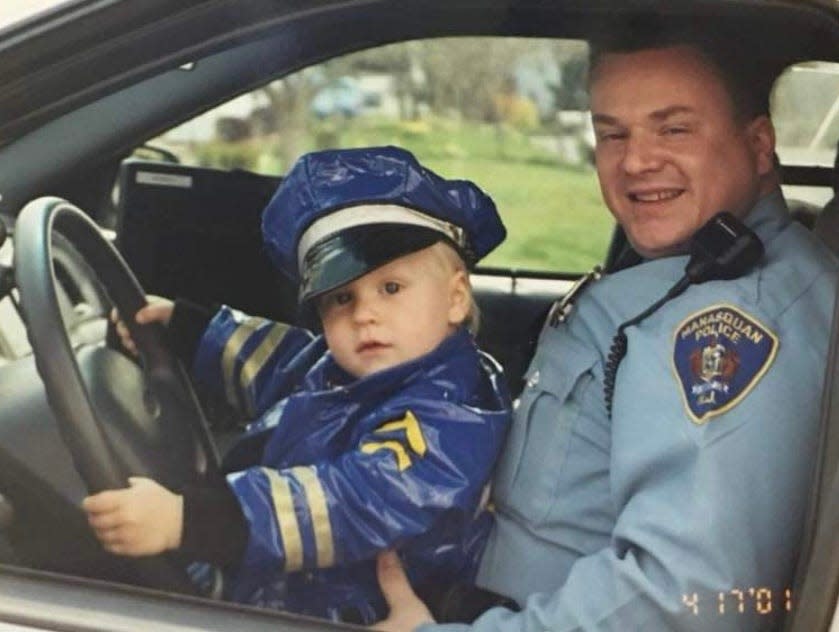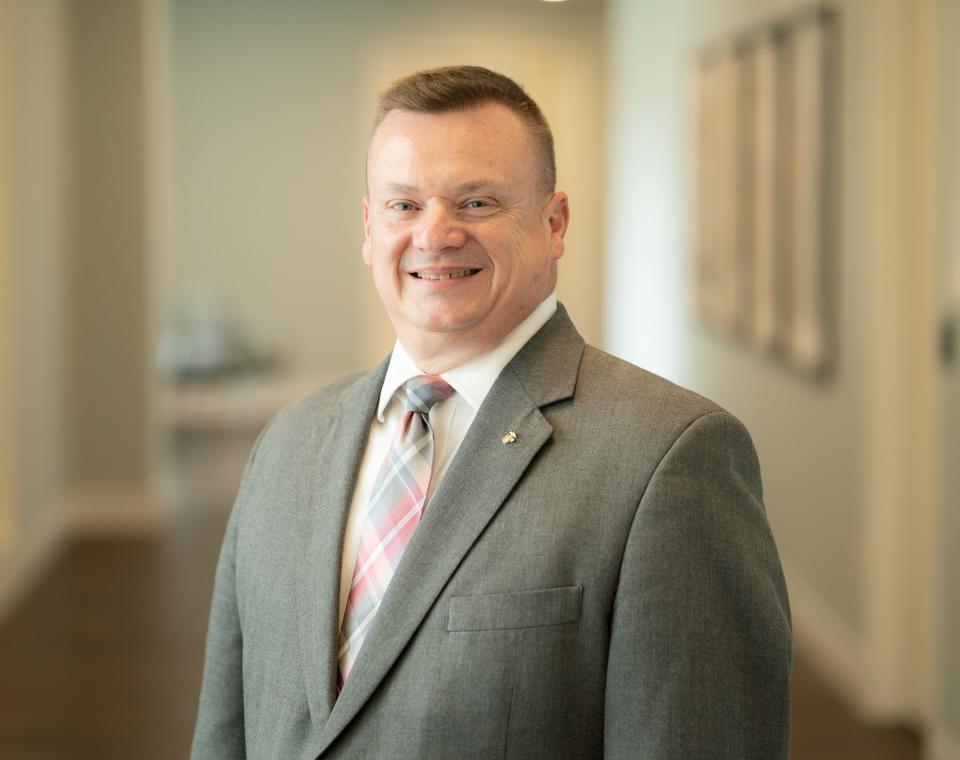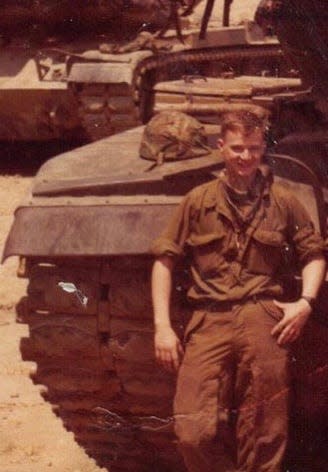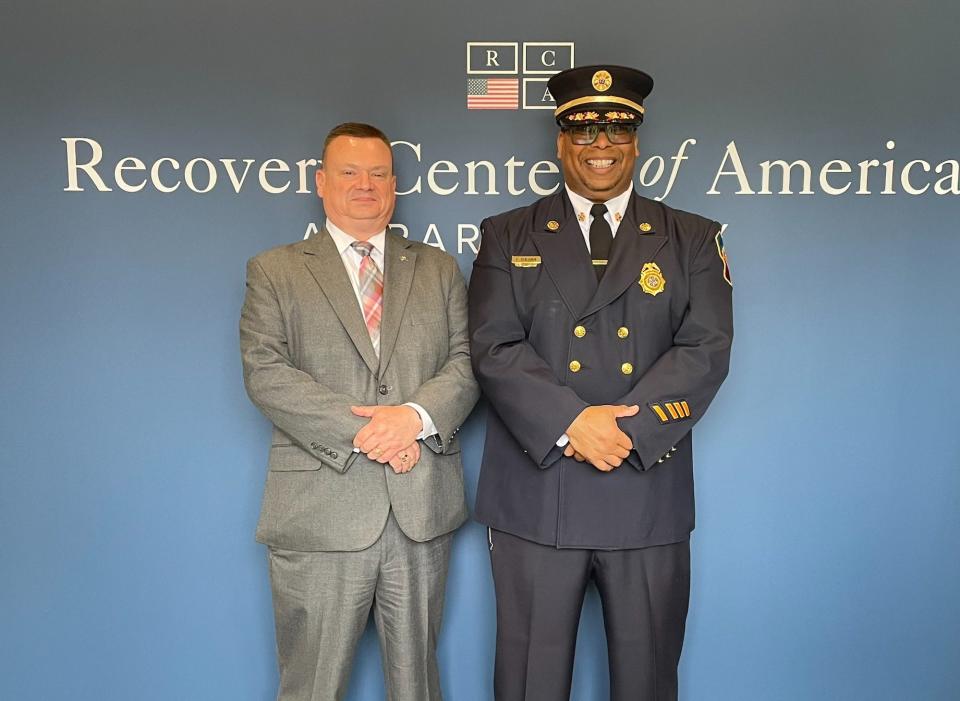Veterans, first responders battle addiction. Brielle man has been there and can help

The phone call came “out of the blue” Sunday night, Brian Gillespie said.
A retired police officer who reached 500 days of sobriety thanks in part to Gillespie’s guidance was on the line, seeking an opportunity to encourage others like them who are in addiction recovery.
This has been Gillespie’s mission, one formed through service in the Marines, two decades as a Manasquan police officer, and ultimately his own alcohol addiction and recovery.
“It’s fulfilling,” said Gillespie, a 59-year-old Brielle resident. “If anyone questions how they can get fulfillment in their lives, they should work in recovery.”

This Veterans Day will feature the usual bromides and photo-ops by politicians about honoring those who have defended America. But for some of them, a battle is ongoing. According to the National Institute on Drug Abuse:
More than one in 10 veterans have been diagnosed with a substance use disorder, slightly higher than the general population.
Compared with their nonveteran counterparts, veterans were more likely to use alcohol and to report heavy use of alcohol.
More than 9% of veterans reported that they experience severe pain, compared with only 6.4% of non-veterans.
As the institute's website notes: “A number of environmental stressors specific to military personnel have been linked to increased risk of SUDs (substance abuse disorders) among military personnel and veterans, including deployment, combat exposure and post-deployment civilian/reintegration challenges.”
In this battle, Gillespie remains on the front. He’s a treatment advocate with RESCU, a program that helps active military members, veterans, first responders and correctional officers overcome drug and alcohol addiction. RESCU is an arm of Recovery Centers of America at Raritan Bay, a treatment facility in South Amboy.
“He has been so instrumental, not only providing support for our veterans directly, but also having the force of saying, ‘OK, I’m just like you, I’m suffering with the same issues,’” said RESCU primary therapist Freddy Benjamin, a former Matawan fire chief.
'Been there and done that'

Gillespie grew up in Jersey City and comes from a lineage of veterans and police officers. He served in the Marines from 1982-86 and was deployed along the Western Pacific and in Japan. He later spent 21 years in the Manasquan police department before retiring in 2010. Working at Rutgers as a security guard, he became deeply involved in peer support initiatives for veterans and cops. In 2015 he started his own road to addiction recovery, and he joined RESCU at its launch in 2021.
“Everything I’ve done is to help other people, but at the same time, I’m helping myself,” Gillespie said. “It’s important for those who are struggling that there is someone who can help, someone who has been there and done that.”
What military members and first responders experience is so different from other pursuits, Benjamin said, that peer counseling is essential.
“First responders and military, we actually have two families: We have biological families and what we call our work family,” he explained. “Sometimes our work family, or our unit, knows more about us than our biological family. There are certain things we don’t share with our biological family — one, not to worry them, and the second reason is that we don’t feel they understand.
“But when you’re sitting down with an ex-Marine and a retired police officer and they’re telling you they get it, that means they get it. There’s just a different sauce to this."
A telling gesture

As part of his mission, Gillespie organizes recovery meetings led by counselors who can relate to veterans and first responders. Sometimes, it’s a program alum who wants to give back.
“When someone who has been through the same thing as you and speaks your language says, ‘Hey listen, we can do this together; it’s OK to talk about it,’ I can’t tell you how much that helps,” Benjamin said. “Especially when it comes to retired military who are a little detached from friends in their unit and don’t have the freedom to talk to a loved one about their experiences with trauma or addiction or recovery.”
Benjamin said Gillespie is particularly good at “speaking to family members to de-escalate problems” and connecting those in recovery to outside services as needed.
If someone in need doesn’t have health insurance that covers RESCU, Gillespie said, “I’m able to get them into a facility that can help them.”
Benjamin said “a lot of people who come in here think they’re alone.” One of Gillespie’s first gestures lets them know that’s not the case.
“There is no hotline,” he said. “I give out my personal cell number.”
That number, for veterans, military members and first responders who need help, is 732-921-7411. Gillespie also can be reached by email at Bgillespie@recoverycoa.com.
Jerry Carino is community columnist for the Asbury Park Press, focusing on the Jersey Shore’s interesting people, inspiring stories and pressing issues. Contact him at jcarino@gannettnj.com.
This article originally appeared on Asbury Park Press: Veterans Day: Brielle man knows how to help vets fight addiction

